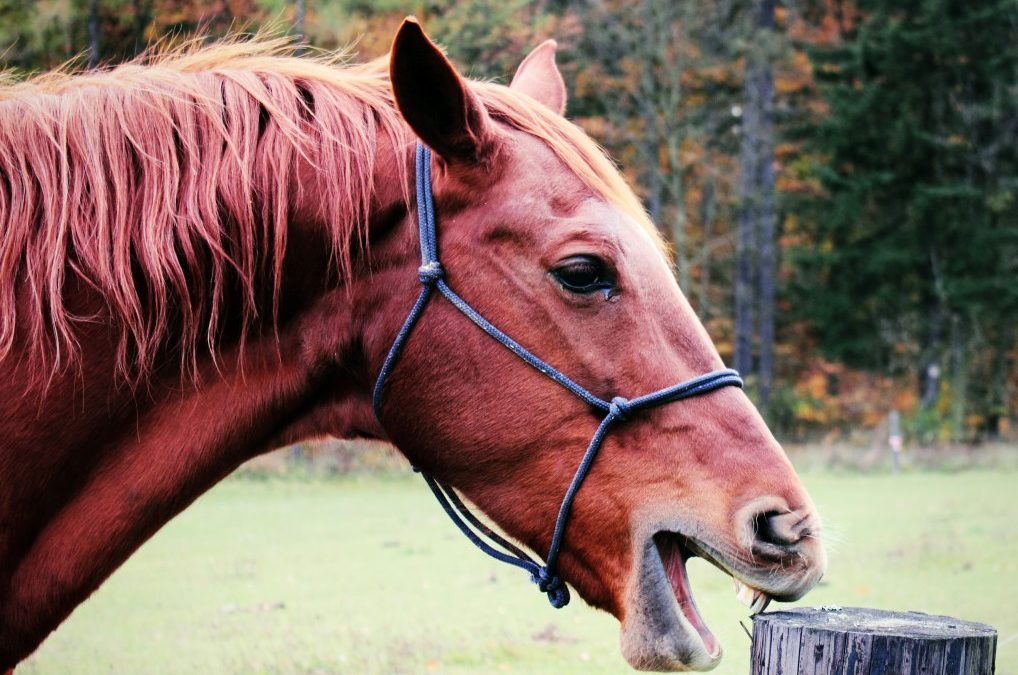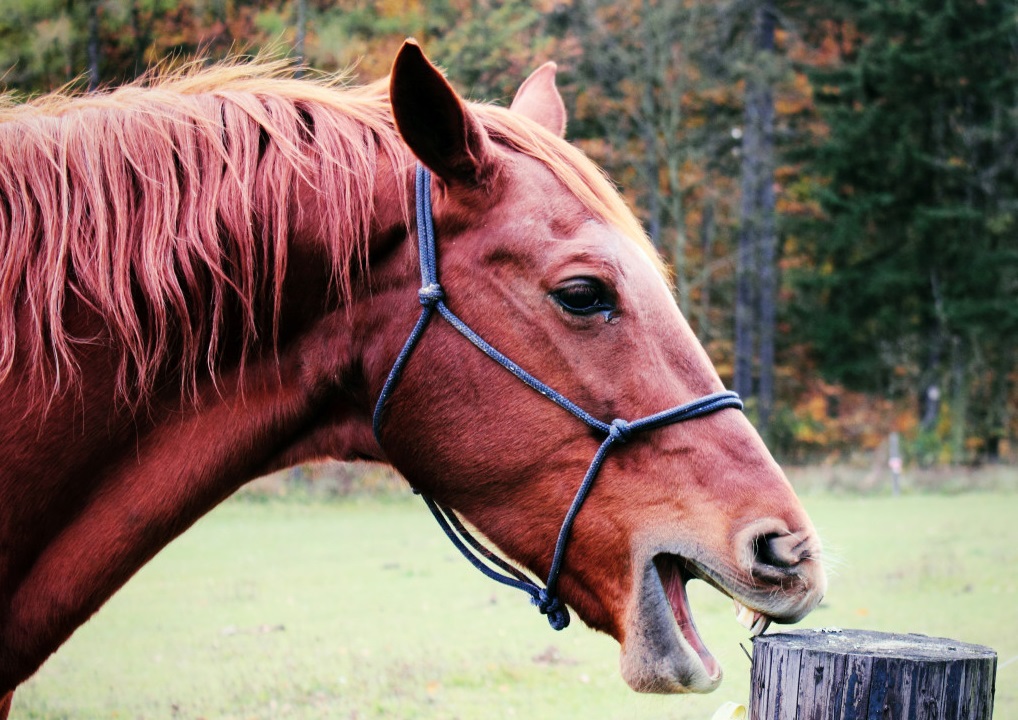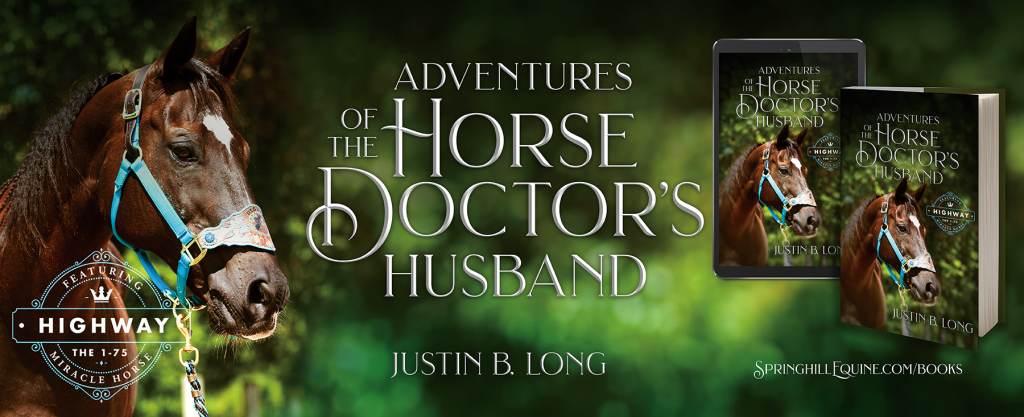
Cribbing
Tuesdays with Tony
Horses are weird. One of my Docs has a horse who cribs. This behavior makes absolutely no sense to me. Cats would never do something this weird. Why on earth would you want to grab a board, or, worse yet, metal, with your teeth, bite down, and lean back all while sucking in air? And yet, cribbing horses are driven to do just that, sometimes no matter how hard their humans try to prevent it. Think you know why they crib? Think again! It’s time to do some mythbusting, Tony style.
It’s because they have ulcers
That’s a big old maybe, but probably not. Gastrogard was sure they were going to cure cribbing, but a study of cribbers showed many of them didn’t have ulcers at all. So scratch ulcers off the list of things that causes cribbing.
It’s because they have been in a stall
This one is a maybe, but it’s complicated. Much like how to properly pet a cat, there are a lot of individual factors that go into being a cribber. Just putting a horse in a stall won’t cause one to start cribbing. Putting a horse in a stall, keeping them there 23 hours per day, and feeding them a lot of grain, now that’s how to make a cribber, mostly. There’s a big maybe to even that part of things. Spoiler alert: going to talk about that in a sec.
It’s because they learned it from a cribber
NO. NO. NO. This one is a definite no. Got that? This is not how horses start cribbing. There are approximately 1 bajillion studies to back me up on this.
Alright, how do they become a cribber?
A combination of nature and nurture creates a cribber. There is without a doubt an inherited component to cribbing. It’s not straightforward though. If mom or dad is a cribber, it doesn’t mean the kids will all crib. Studies have shown about 10% of the kids will crib. That means it’s not one gene, but a combo pack of genes.
Once they’ve got the genes, it also takes the right environment. Sure, being a thoroughbred who goes from living in a field with mom, to being in a stall in race training can do it. Lots of other things can, too. We have one horse in the practice who was born on a 300 acre farm, lived outside her entire life, and started cribbing at around 8-10 months old. This farm had full and half siblings to this filly who never cribbed, and her mom never has either. Moral of that little story is to try to minimize stress as much as possible, but sometimes horses will be horses no matter what.
Can they at least not crib?
Yes and No is the best answer to that question. That’s very cat of me, isn’t it? Horses who crib are really driven to crib. The old version of the reason is the release of endorphins when they crib causes a high. Scientists don’t quite have the answer to what drives cribbing, but they have found out the old version is wrong. In fact, the release of endorphins from something pleasurable, like eating, will often cause a horse to crib more! That intense drive to crib means when the behavior is stopped, these horses get a spike in cortisol, and that’s not what we want. Cortisol is the hormone responsible for fight or flight. High levels cause all kinds of problems. Telling your horse he can’t crib is like putting him underneath a fireworks show in a strange barn with no other horses. It’s seriously stressful.

Managing cribbing is the best plan for cribbers. Figure out what works for you and your horse. If possible, train your horse to crib on something with a bit of give. Take that favorite post and cover it with rubber mat material, or work to train them that the stall door is bad, but this board you put there just for cribbing is OK. Other tricks that minimize cribbing time are low starch, small, grain meals. Studies found high sugar grains, like sweet feed, stimulated more cribbing behavior than plain oats. Most horse feeds these days are low in sugar, but if you’ve got questions, my Docs have answers. Keeping forage in front of your cribber all the time is another great way to decrease the behavior. Finally, turn out as much as possible with a friend has been shown to minimize time spent cribbing.
Don’t discount that perfect horse just because he’s a cribber. Good management means you can have a great horse, and your horse can have a great life.
Until next week,
~ Tony
P.S. I learned a bunch of the stuff in this week’s blog from Dr. Carissa Wickens. I eavesdropped on a podcast she recently did with Dr. Lacher and Justin Long. Check it out on any podcasting platform. It’s called Straight From The Horse Doctor’s Mouth, and it’s pretty darn good. You might also be interested in the book right underneath this. I hear it’s an Amazon bestseller, and getting rave reviews! Just thought I’d let you know.
Tuesdays with Tony is the official blog of Tony the Clinic Cat at Springhill Equine Veterinary Clinic in Newberry, Florida. If you liked this blog, please subscribe below, and share it with your friends on social media! For more information, please call us at (352) 472-1620, visit our website at SpringhillEquine.com, or follow us on Facebook!
[jetpack_subscription_form title="Subscribe to Whinny's Wisdoms"]

